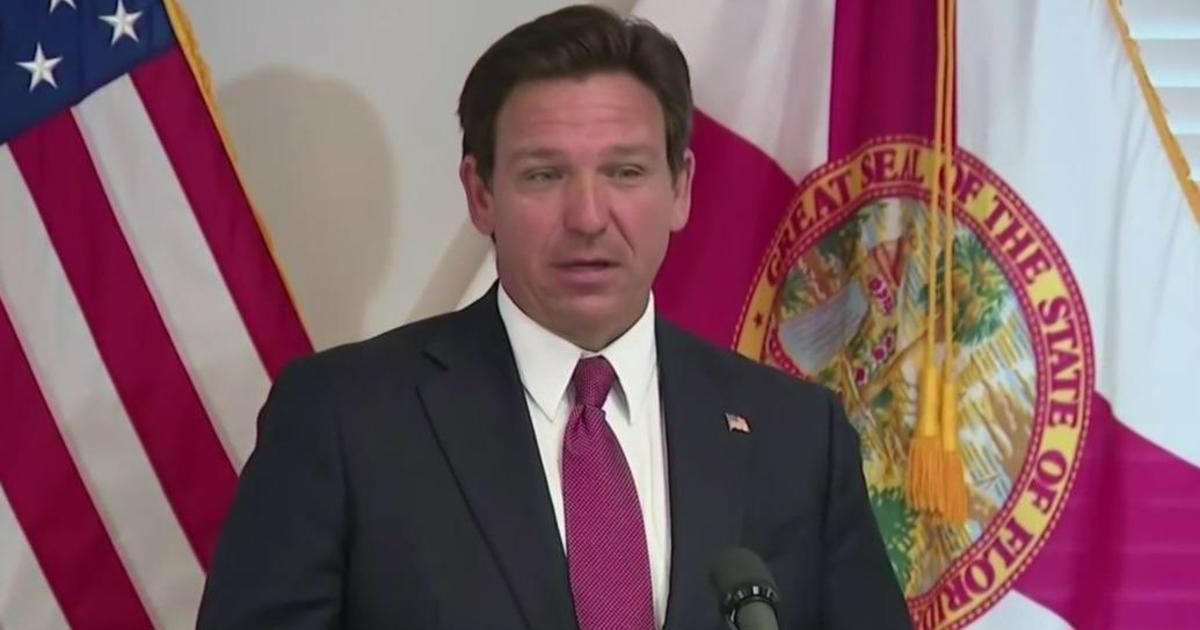Doctors Reporting Medicaid HMO Problems
MIAMI (CBSMiami/AP) — Some doctors and health advocates have reported patients showing up at their officers confused by health insurance plans and many have been cut-off from their regular physician.
The state sent out a press release this week saying that the Medicaid changes have gone well, but The Associated Press interviewed doctors, parents and health advocates around Florida who said privatization has exacerbated problems first noticed in a five-county pilot program eight years ago.
Because the switch to privatization just concluded Aug. 1, the state has no data showing what services are being provided and denied.
Pediatricians said the roll-out was ill-timed coming just as children were getting their back-to-school physicals. In Florida, 55 percent of Medicaid recipients are children from low-income families. Most of the rest are their parents, pregnant women and those with disabilities.
"The timing was terrible, the notification process was terrible," said Dr. Edward Zissman, an Orlando-area pediatrician. He said parents brought hundreds of his patients to his office only to find that they had been switched into a new health plan and that Zissman wasn't in that network.
"We had lines of people that had to get on the phone to change to get us back as their primary care doctor," said Zissman, who said only some were able to successfully switch to a plan that he accepts. He said there didn't seem to be much effort by the state to keep families with the doctors they had been seeing.
State health officials said they assigned patients to plans where they had a previous relationship with a doctor. Unhappy consumers have 90 days to switch to a new plan.
The state anticipated that some families would move and miss notification letters. In the Tallahassee area, some patients with disabilities were auto-enrolled in one plan, then assigned to a specialty plan a few weeks later, which caused confusion.
But as folks develop a relationship with new health plan "they will find that this system is an improvement," said Florida's Medicaid director Justin Senior.
Under privatization, each Medicaid patient gets coverage from one of 14 insurance companies — about a third of patients chose the plan they now have, while the rest let the state assign them. The state pays the companies a set amount per patient each month to provide coverage. Previously, the state paid doctors and hospitals directly for each service.
Privatization proponents say it saves the state money and improves patient health as the insurance companies have a financial incentive to encourage them to get preventive care. Critics say the pilot program showed no evidence that money was saved or patient health improved.
Some Medicaid patients complained to the AP they can't get the doctor they want.
Alison Thomas' 16-year-old son has sickle cell disease and was assigned to a new plan and doctor she didn't select. For years, her son was able to see a Gainesville specialist who would visit Tallahassee, where they live. But that specialist isn't covered under the new plan, so the mother of four has to take off work and drive six hours to Gainesville to see another specialist. There is also a new $40 co-pay.
"This is a child with a lot of complications and this doctor has no idea how to deal with this child ... you can't just give them somebody new and tell them to read your medical record and catch up, " said Thomas, who is trying to switch her son into another plan.
Insurance companies say children can be more difficult to cover than adults. Many have single mothers who work hourly jobs and can't afford to take time off for an appointment. There are also transportation issues and language barriers.
"The barriers are almost too numerous to count," said Cindi Scollins, WellCare of Florida's vice president of health services.
She said the company assigned children to pediatricians, but many still weren't showing up for appointments. WellCare assigned one of its employees to a Miami pediatric that serves 18,500 kids. The staffer combed through data and found more than 9,000 enrollees who had missed appointments. After thousands of phone calls, the employee contacted 953 families and scheduled 235 appointments.
For example, the employee got a single mother a ride and an after-hours appointment for all three of her children so she wouldn't miss work, Scollins said.
But some doctors remain skeptical.
"I have people who walk a mile or two with their kids to my office. The idea of a managed care company is providing transportation is laughable," Zissman said.
Amerigroup recently signed contracts with school-based clinics, expanding from nine to more than 50 statewide.
Parents sign consent forms at the start of the school year, which ensures their kids get yearly check-ups and immunizations as well as mental health therapy and EKGs. The school clinics also do telemedicine appointments with dermatologists, nutritionists, and psychiatrists.
Amos LeClerc, 15, stopped coming to school last year due to problems at home. When his absentee rates spiked and his grades dropped, school health staff paired Amos and his older brother up with a therapist.
"She motivated me and helped me figure out what the problem is," said LeClerc, whose attendance improved dramatically. Now, the 10th grader at North Miami Beach Senior High School says he wants to go to college to study computer engineering.
RELATED CONTENT:



